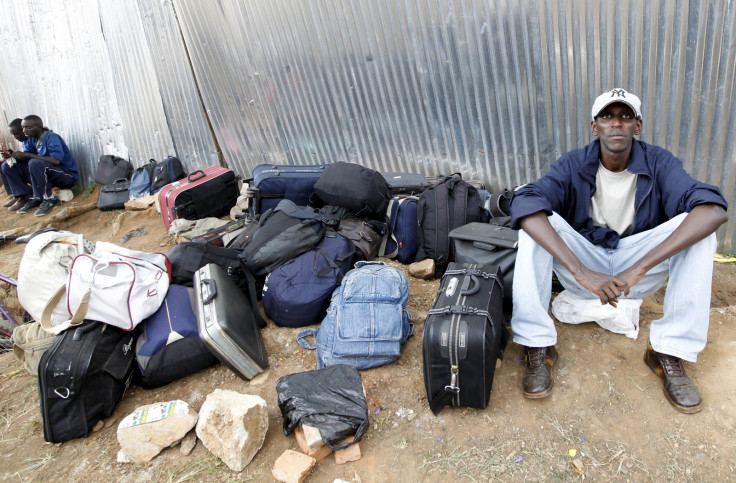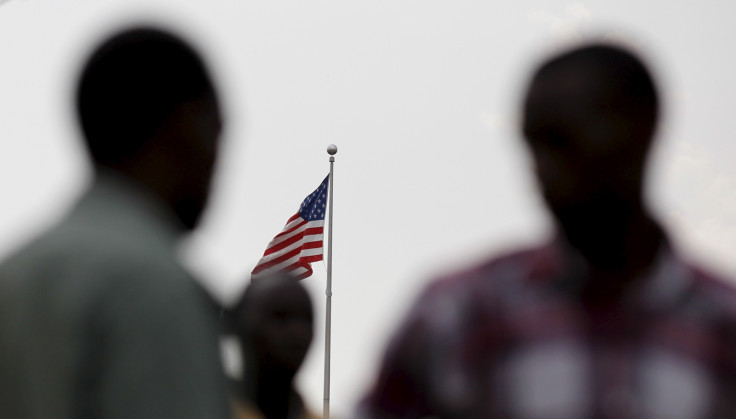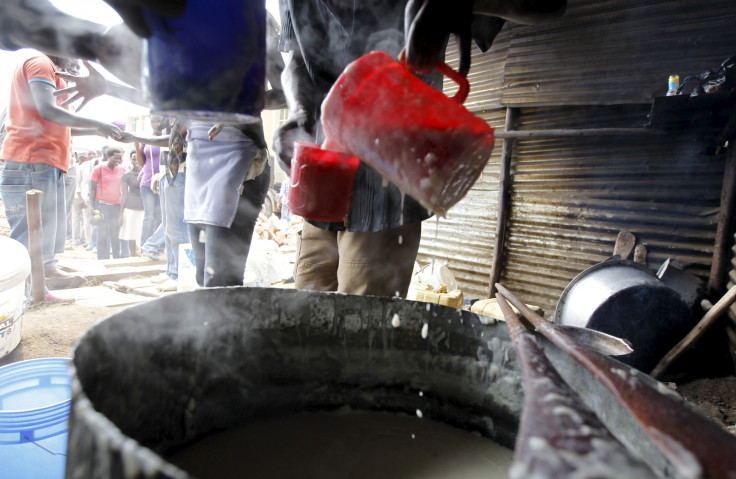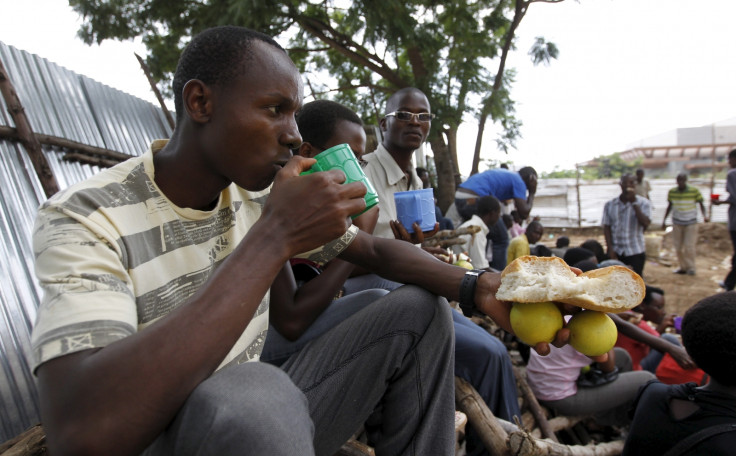Burundi: 600 university students refuse to leave US Embassy amid fear of reprisals

Hundreds of Burundian students are camping outside the US Embassy in the nation's capital, Bujumbura, for fear of reprisals. This follows the resumption of protests in a number of districts, where police officers have opened fire to disperse demonstrators.
Around 600 students are seeking shelter beneath the walls of the American Embassy in Bujumbura because, they claim, the US authorities ensure their security, after their university was closed amid anti-government protests.
The government closed the university at the end of April, citing "insecurity".

US Ambassador Dawn Liberi and Assistant Secretary of State for Democracy, Rights and Labor Tom Malinowski welcomed the students when they first started flocking to the embassy's gates after the 26 April when Burundi's ruling party National Council for the Defense of Democracy (CNDD-FDD) nominated President Pierre Nkurunziza to stand for re-election.
"The government's decision to close down the university has caused unnecessary and unwarranted suffering to those who sought only to express themselves politically. Freedom of expression and assembly are core values to all democracies, including Burundi," the embassy said in a statement.
The ambassador added that anyone seeking safety at the embassy would not be asked to leave "so long as they remain peaceful and calm".
More than six weeks later the students are still there, and their ranks are swelling.
"We are outside the embassy, so no one can come and take us away and harm us," Blaise (not his real name), a second-year student at the University of Burundi, told IBTimes UK.
The young man's family lives in the countryside.
Local residents bring them food and water. Until now, Blaise says, he has not gone hungry.

Deserted universities
Teaching at the local universities stopped after opposition leaders rejected the CNDD-FDD's candidacy decision, which set off over a month of street violence leaving more than 40 people dead and over 500 injured.
The rector of the University of Burundi asked for students to return last week, but until now, the young people have failed to follow the orders. The university is deserted.
"We just cannot see how we could return to the university benches where insecurity is so present," Blaise said. "I'll stay here as long as it takes until our security is restored, and as long as the embassy can protect us."
According to an aid worker, who has been taking testimonies from students, lectures would resume if at least 50% of them returned. "The fact classes have not started again shows the number is well below the halfway mark."
Intimidations on campus
The student claims he, and many others, will be tracked down by members of the CNDD-FDD's Imbonerakure youth wing if he returns to his province or to his university dormitory.
I'll stay there as long as it takes until our security is restored, and as long as the embassy can protect us.
"We cannot return to our home or to our campus because the militia chased us out of there. Some of us are sought by the secret services. We are scared for our security in the university buildings and the surroundings. For the moment we are too scared to regain our dormitories," Blaise said.
According to the aid worker, there are no security services at the university, which means anyone – including the Imbonerakure, who have often been accused of being behind a campaign of intimidation that has led to the flight of over 72,000 Burundians to bordering countries – can enter the buildings.
"We know that young people from the Imbonerakure enter, try to infiltrate and stir up trouble.The fact there are 500 students here shouldn't be banalised, even if the government does banalise it. It's a sign of both instability and insecurity," the aid worker said. "The issue is that these students are not heard or listened to."
Government must re-establish security
Referring to the death of student Theogène Niyondiko on 5 June during a protest in Musaga, Blaise is calling on the government to "re-establish security for all.
"Only the government holds the key to our security," Blaise said. "There is insecurity everywhere: in Bujumbura and in the provinces we come from, hence why we cannot return."
The aid worker echoes this, adding the government needs to roll out mechanisms to ensure the security of students in their universities.

"As someone who works in reducing conflicts in Burundi, I understand their fear, but external actors, including the international community, and the East African community, need to take the issue seriously," the aid worker told IBTimes UK.
Three teachers arrested in Makamba
Sources confirmed that three high school teachers – one of then a member of the Movement for Solidarity and Democracy (MSD) opposition party – were arrested on 9 June in Kibago, Makamba, a town that was rocked by clashes between police and protesters.
"Their students, all between 14 or 15 to 18, took to the streets to ask for the release of their teachers. They were demonstrating against these arrests. The police opened fire to disperse the young people," a source told IBTimes UK.
But the government claims a majority of the territory is safe, as it says that protests are mainly organised in the capital.
"Security in Burundi is generally good because 99% of our territory is peaceful; because out of 18 districts or provinces, 16 are peaceful; out of 119 communes, 116 are peaceful; out of 3002 smallest administrative entities known as 'Collines', only 5 have gone to the streets," Nkurunziza told the East African Community summit in May.
Protests resume in Bujumbura
Protests on 9 June resumed in Mutakura, Cibitoke and Buterere after days of calm.
A police source said the head of the Mobile Intervention Group and Rapid Intervention Police for the northern districts of the capital, Leonidas Ningaza, had allegedly given the order by radio to "shoot to kill" anyone who tried to demonstrate, in order to discourage further demonstrations.
As I walked I saw police shooting because they wanted to free the streets. It was to disperse the protesters.
Sources on the ground told IBTimes UK that protesters were facing "fierce police repression" and that officers had opened fire to keep them away from the main road.
In Mutakura, a source confirmed it had witnessed the police firing to disperse protesters.
"When I left the house at around 9.00am, there were gun shots. But as I walked I saw police shooting because they wanted to free the streets," the source said. "It was to disperse them."
Another source said there were no protests in the centre of Bujumbura. "It's calm. There's nothing here."
Calm returns to Jabe
In Jabe, where a protest was due to take place at 9.00am local time, a local resident said the "calm had come back" after a large number of police officers had patrolled the streets "avenue by avenue" in the early hours of the morning.
"We were supposed to start the protest at 9am, but nothing has been done," the source said over the phone.
Police officers have since left the district, the source said.
© Copyright IBTimes 2024. All rights reserved.







